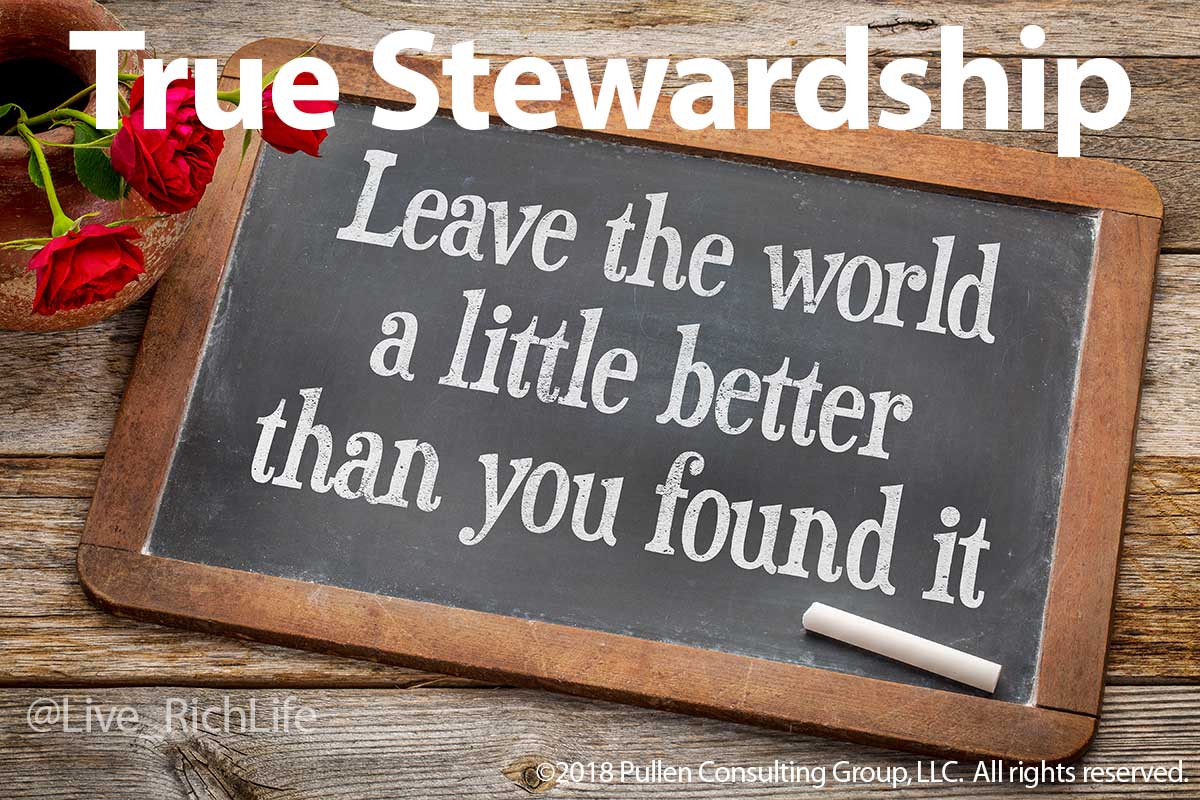The idea of stewardship seems to be an integral part of a family being successful in the long term. Surprisingly, most of the families I have worked with or interviewed did not specifically list stewardship as a defined value that they were intentionally living from. Yet most talked about it or the essence of it as a value that they aspired to and practice that was important to them. For families who are intentional about flourishing, stewardship seems to be an essential attitude and spirit, one that isn’t driven by outside expectations but grows out of what is important to members of the family. It is part of the family’s core philosophy, so fundamental that it almost goes without saying.
Stewardship is about more than giving. It is often defined as “the careful and responsible management of something entrusted to one’s care.” It is about having something valuable and doing something worthwhile with it. Stewardship, then, includes not just financial giving but the full and wise use of all of a family’s capital-intellectual, social, and spiritual.
In his book Stewardship; Lessons Learned from the Lost Culture of Wall Street, John Taft says that his personal definition evolved from the classic definition to what he called the “Golden Rule of Stewardship—leave the world better off than you found it”—and the more existential formulation—”your purpose on earth is, ultimately, about service to others.”
